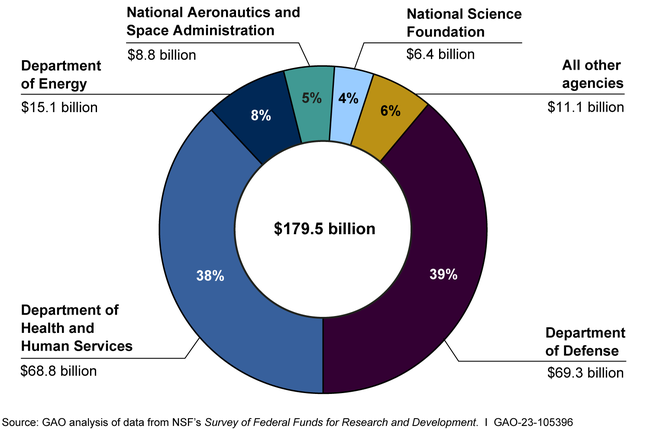Global well-being is more than just a measure of economic success; it’s a reflection of the collective health and happiness of communities around the world. Recent studies highlight alarming disparities, particularly among the youth, emphasizing the importance of social connections and mental health in achieving holistic human flourishing. As researchers dive into the complexities of global well-being, they find that wealth does not necessarily translate into greater life satisfaction or fulfilling relationships. Instead, middle-income nations are leading the way in fostering environments that promote emotional and social health, challenging traditional assumptions about economic development. To truly enhance global well-being, it is crucial to consider investment in our youth, as their future flourishing greatly impacts the sustainability of societies.
The notion of collective vitality encompasses various dimensions, such as mental health, youth flourishing, and social cohesion. Recently conducted global studies have revealed critical insights into how different nations prioritize human flourishing beyond mere financial indicators. These findings underscore a shift in focus from economic metrics to exploring deeper connections that contribute to life satisfaction and overall well-being. In particular, the young generation’s experience of joy and fulfillment is increasingly seen as essential for the long-term health of communities. By investigating these intricate relationships, we can better understand the vital role that social connections play in nurturing a thriving society.
The Importance of Youth Well-Being in Global Health
Youth well-being is increasingly recognized as a critical factor influencing global health outcomes. A recent study highlighted the troubling disparities in flourishing among young people compared to older adults, particularly in high-income nations like the U.S. This gap raises pressing questions regarding our investment in youth, as societal conditions evolve. Factors such as mental health, social connections, and educational opportunities play a pivotal role in shaping the well-being of younger populations. Studies show that fostering strong relationships with peers and family not only enhances happiness but also contributes to a more resilient youth ready to tackle future challenges.
Moreover, mental health has become a focal point in the discourse around youth well-being. With escalating rates of anxiety and depression among adolescents, it is essential to implement supportive frameworks that prioritize their emotional and psychological health. Programs promoting social connections and community engagement can lead to significant improvements in mental health outcomes. Addressing these issues is vital to ensure that our youth not only survive but thrive, contributing positively to societal development and overall economic success.
Frequently Asked Questions
What is the impact of global well-being on youth mental health?
Global well-being significantly influences youth mental health, as studies indicate that an individual’s flourishing correlates with supportive social connections, economic stability, and access to mental health resources. Programs that emphasize youth well-being can foster resilience and better emotional health outcomes in younger populations.
How does economic development relate to global well-being?
Economic development plays a complex role in global well-being. While increased financial resources can improve living conditions and access to healthcare, they do not guarantee higher levels of happiness or fulfillment. Studies show that communities with strong relationships and social ties often experience greater human flourishing despite lower economic standing.
What are the key components of human flourishing in relation to global well-being?
Key components of human flourishing within the context of global well-being include mental health, meaningful relationships, a sense of purpose, spiritual well-being, and financial security. The balance of these elements contributes to overall life satisfaction and can differ significantly between cultures and nations.
Why is focusing on social connections important for global youth well-being?
Social connections are crucial for global youth well-being as they provide support, enhance emotional resilience, and promote healthy development. Strong interpersonal relationships help mitigate the negative effects of stress, leading to better mental health outcomes and fostering an environment conducive to flourishing.
How can investments in youth well-being lead to better economic development?
Investing in youth well-being can lead to improved economic development by nurturing a skilled, healthy, and engaged workforce. When youth flourish, they contribute positively to society and the economy, creating a feedback loop where enhanced well-being results in greater economic stability and growth.
What are the challenges faced by nations in promoting global well-being?
Challenges in promoting global well-being include cultural disparities, economic inequality, and the neglect of non-material aspects of life such as relationships and community ties. Additionally, the emphasis on economic growth can sometimes overshadow crucial investments in mental health and social infrastructure necessary for true human flourishing.
How does the Global Flourishing Study contribute to understanding youth well-being?
The Global Flourishing Study provides valuable insights into youth well-being by analyzing vast data across multiple nations. It reveals patterns and variables that influence flourishing, helping policymakers and educators create targeted initiatives that promote mental health, social connections, and overall life satisfaction among young people.
What role does family health play in global well-being for youth?
Family health is vital for global well-being in youth, as the quality of early childhood experiences strongly influences long-term mental health and flourishing. Healthy family dynamics provide youth with the support they need to thrive emotionally and socially, impacting their overall development and future prospects.
In what ways can global well-being initiatives support mental health improvement?
Global well-being initiatives can enhance mental health by fostering inclusive communities, providing access to mental health resources, promoting positive social interactions, and encouraging practices that boost overall life satisfaction. By addressing the underlying factors of human flourishing, these initiatives can create environments conducive to better mental health.
What does the ranking of youth flourishing across nations tell us about economic success?
The ranking of youth flourishing across nations highlights that economic success does not always correlate with high levels of happiness and well-being. This suggests that countries must focus on holistic development strategies that prioritize youth relationships, purpose, and character traits alongside material wealth to foster true human flourishing.
| Key Point | Description |
|---|---|
| Study Overview | A global study conducted on human flourishing, encompassing 203,000 participants across 22 countries and representing 64% of the global population. |
| Findings on Youth | The study reveals troubling rates of well-being among youth, particularly in the U.S., highlighting the need for investment in future generations. |
| National Rankings | Countries such as Indonesia, Mexico, and the Philippines ranked highest in flourishing, suggesting that wealth does not guarantee overall well-being. |
| Key Variables | Seven variables defining flourishing: health, happiness, meaning, character, relationships, financial security, and spiritual well-being. |
| Importance of Relationships | Strong parental relationships and religious involvement during childhood correlate with higher flourishing in adulthood. |
| Future Research | The longitudinal study will continue to collect data annually to further understand the complexities of human flourishing across cultures. |
Summary
Global well-being is fundamentally influenced by more than just financial status. This comprehensive study highlights critical concerns regarding the well-being of youth globally, prompting urgent discussions on investment in their future. The evidence presented shows that while countries may experience different levels of economic prosperity, the true measures of flourishing revolve around social connections and meaningful relationships. As society grapples with these findings, it becomes essential to re-evaluate how development is pursued, ensuring that spiritual and relational aspects are not undermined in the quest for economic growth.



